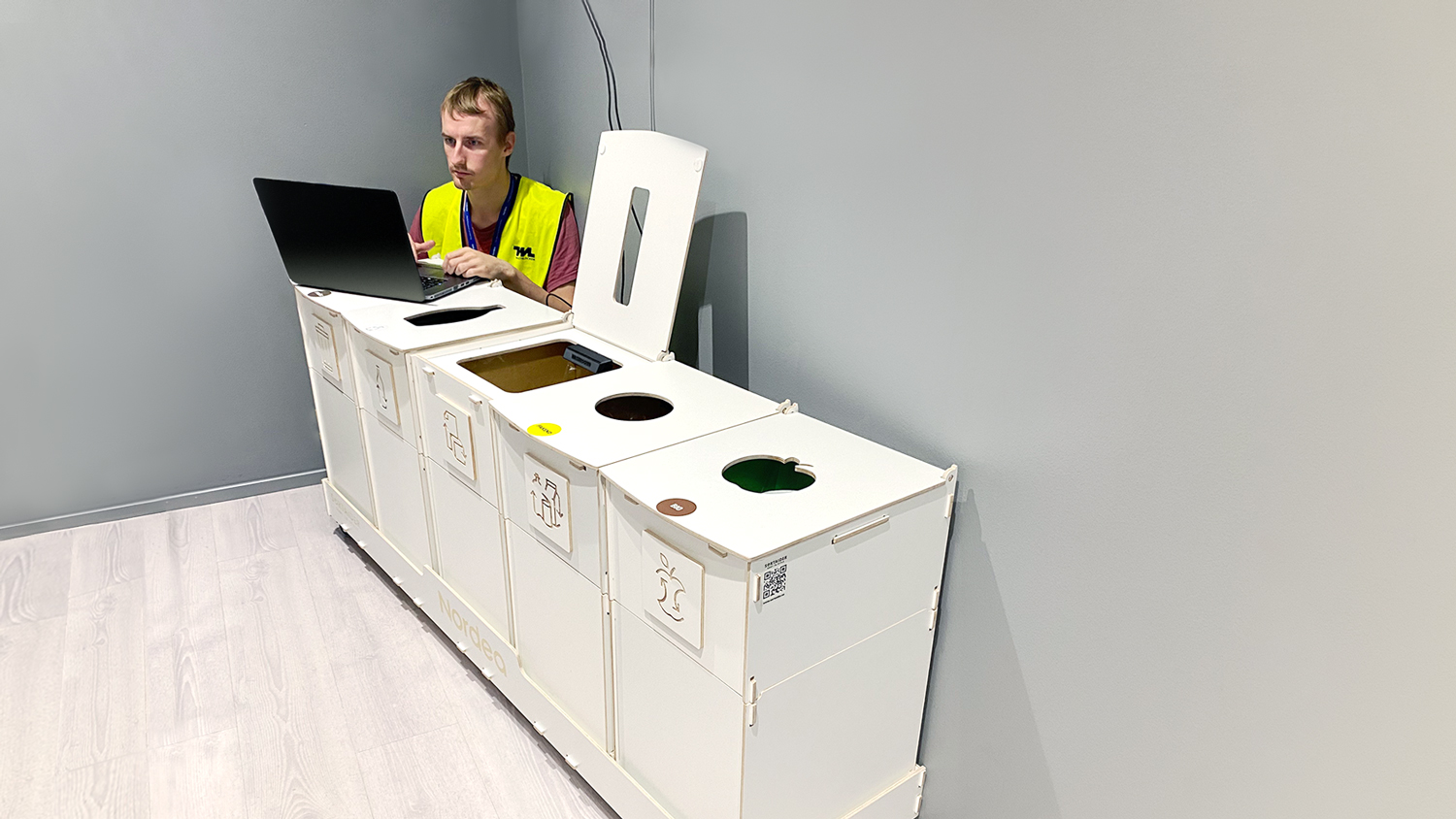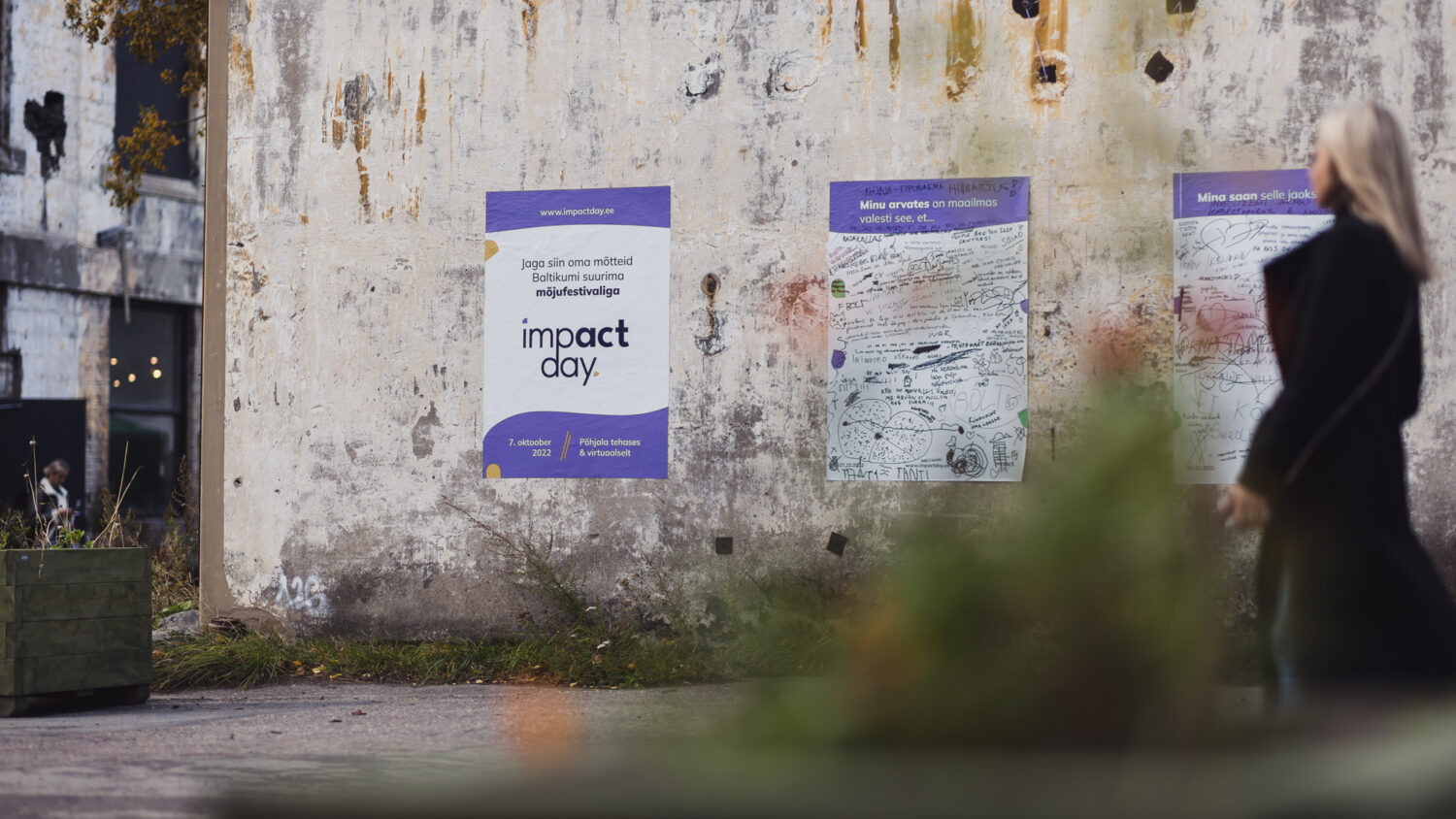Like many other countries in the EU, Estonia faces unique challenges in its labor market due to demographic shifts, specifically a declining and aging population. As we all grapple with this issue, it becomes increasingly important for employers to adapt. But how can employers foster resilience in the labor market and ensure its long-term sustainability?
Understanding the current labor market dynamics
The current labor market is characterized by a situation where talented job seekers hold the upper hand. This phenomenon can be attributed to several factors, including that job seekers have more options and can easily move from one role to another. Factors like salary, job titles, exciting work, employer’s reputation, recruitment experience, and speed still play a pivotal role in attracting and retaining talent.
What can employers influence in today’s situation?
While employers might feel constrained by the current labor market dynamics, there are several strategies they can employ to remain competitive and attractive to potential employees.
Here are 10 equally important key areas any employer can shape with their daily actions:
1. Embrace age diversity as a driver for innovation
The aging population in Estonia necessitates a re-evaluation of the average age commonly found in our startup market. To truly innovate and thrive, we need the collective wisdom and experience of the entire community, spanning generations. Employers must be willing to adapt their job structures and attitudes to accommodate this new demographic reality.
Age diversity can bring fresh perspectives and a wealth of experience. By fostering an environment that values and integrates older professionals, companies can tap into a broader talent pool, promote intergenerational knowledge transfer, and fuel innovation that transcends age boundaries. This inclusivity will not only benefit businesses but also contribute to a more resilient and sustainable labor market in Estonia.
2. See limits as possibilities to grow
In addition to addressing the challenges posed by demographic shifts, it’s important to recognize the untapped potential of individuals with reduced working capacity. Statistics reveal that there are nearly 100,000 people with a reduced work ability in Estonia – a valuable segment of the population that can contribute significantly to the workforce.
The key lies in developing flexible solutions that accommodate individuals with unique needs and abilities. Moreover, it’s vital to preserve the essential element of humanity in these efforts. By providing accessible workplaces and fostering an inclusive work culture, companies of all sizes can tap into this often-overlooked resource. In doing so, they not only promote economic sustainability but also enhance the social fabric of the country.
3. Adopt a life-long learning mindset
Invest in the continuous development of your workforce. Provide training (internal/external), opportunities for skill enhancement, and clear paths for career advancement. In a rapidly evolving job market, individuals can acquire knowledge and skills faster than ever before, thanks to advancements in technology and educational resources. Consequently, organizations should adapt to this reality by offering clear paths for career advancement that align with the accelerated pace of skill acquisition.
This adaptability ensures that employees can shape and progress in their careers swiftly, contributing to their job satisfaction and the overall dynamic of the labor market in Estonia. By fostering a culture of continuous learning and career development, employers can position themselves as leaders in the ever-changing landscape of the Estonian labor market.
4. Trust curiosity as your waymaker
We can change the labor market by multiplying a person’s knowledge and skills throughout their career. Creating a resilient labor market also involves cultivating an environment where employees feel safe to experiment and can learn from their mistakes. Mistakes are valuable opportunities for growth and innovation, but only if they are acknowledged and used to support process improvements.
Employers should promote a culture that doesn’t punish slip-ups but rather encourages employees to share their experiences openly and discuss what and why happened to avoid repeating the same mistakes. The lessons learned can lead to more efficient processes, higher-quality products or services, and an overall increase in productivity.
5. Commit to innovation and adaptability
Demonstrate your commitment to innovation and adaptability. Embrace new technologies and trends in your industry to attract forward-thinking individuals.
Great technology is innately tied to innovative thinking. Years of experience in a field is no reason for becoming rigid or stagnant. It’s meant to support the new and to create a safe space to allow challenging the status quo. A comfort zone is a beautiful place, but nothing ever grows there
6. Build your company culture on respect
Foster a positive company culture that values diversity, inclusivity, and employee well-being. A great workplace environment can significantly impact job satisfaction.
Company culture is not the number of company-wide parties we organize or the bonuses and presents you provide your employees. There will always be a cooler coffee machine somewhere or better snacks. These aspects are important parts as well, as having none would make your company stick out like a sore thumb. However, a long-lasting strong company culture comes down to acknowledging how we work.
The strength of a good company culture lies in respecting each individual for their expertise and trusting their judgment in their assignments. This in turn will support people in being open to and accepting constructive criticism. Once you have the fundamentals set, you can be sure that your people will not care if you have the best coffee in the world or hire the coolest band for the next Christmas party. They will stay with you because of the respect that has weaved itself through the parts that matter most.
7. Show transparent environmental and social responsibility
Demonstrate your commitment to sustainability and social responsibility. Many job seekers are increasingly drawn to employers who share their values. But be honest and transparent in the process, don’t give out empty promises.
Committing to any SDGs requires specific KPIs on how and when to reach those goals in your company. How will your actions benefit society at large? Can you ensure the results last? Measurable goals will speak for themselves and leave little if no room for gray areas.
8. Invest in your recruitment experience
Streamline your recruitment process to make it efficient and respectful of candidates’ time. A poor recruitment experience can deter potential talent.
Take the time to plan your processes thoroughly and focus on managing people’s expectations. Knowing in advance that it will take, for example, 3 months to make the final decision, may automatically eliminate the candidates who wish to find something ASAP. It’s also respectful of the candidate’s time, as well as your own.
Another crucial part of the recruitment process is knowingly dealing with the “No”-s. We’re used to focusing on the onboarding experience of the people we hire, but it’s crucial not to neglect the ones you have to decline. In some cases, personalized feedback might be a feasible approach to take. The message can also be a short sorry, but without giving false hope. If you don’t see a person fit for the position because their values don’t align with the company, avoid messages like “stay tuned for upcoming position openings”. If you truly have another role in mind, suggest upfront they apply for it instead.
9. Keep on track with competitive compensation
While salary isn’t the only factor, it remains a critical one. Ensure that your compensation packages are competitive within your industry.
Encourage your employees to speak up about the contents of the package. The idea of a motivating compensation package can vary greatly depending on the nature of the work, the office’s physical location (or lack of it), differences in working hours, or any other relevant factors. Meeting everyone’s wishes may not always be possible, but leaving the door and mindset open for fresh suggestions will spark inspiration toward a good common ground.
10. Support a healthy work-life balance
Offering a healthy work-life balance can make a company more appealing to candidates, especially those with family commitments.
Furthermore, fostering physical and mental fitness can greatly enhance an employer’s appeal. Organizations can facilitate gatherings of employees with similar hobbies or interests, providing a platform for them to connect, share experiences, and strengthen their sense of belonging. These interactions not only promote a healthier work environment but also contribute to employees’ overall well-being.
A critical aspect of creating a positive work environment is supporting employees’ mental health. Employers should prioritize mental health by providing resources and a safe space for employees to discuss their concerns. Every job, regardless of its nature, can introduce tension and challenges that may affect an employee’s mental well-being. Recognizing this, companies should offer access to professional help when needed, ensuring that employees can maintain their mental balance.
Ultimately, an employer’s responsibility extends beyond the workplace. Other than ensuring that employees contribute effectively during working hours, their duty also includes enabling them to be content and productive when they return home in the evening. They might perhaps be a bit tired but filled with a sense of accomplishment and happiness.
A curious and innovative mindset will fuel resilience
Estonia has a rich history of resilience and adaptability – these qualities can be extended to the labor market as well. Embracing curiosity as a driving force can lead to meaningful changes in the whole landscape. Employers should not shy away from exploring innovative solutions to the challenges posed by the changing demographics.
Attracting and retaining talent is not just about the present; it’s an investment into the future. As Estonia continues to navigate the evolving labor market, employers who prioritize sustainability, employee well-being, and adaptability will be better equipped to keep thriving time after time.
Although job seekers may have the upper hand, employers have a vital role to play in shaping the future. Fostering resilience in the Estonian labor market is a shared responsibility for all employers. By embracing and adopting forward-looking strategies, a sustainable and thriving working culture is within close reach.
Text by: Signe Virolainen, HR Manager, and Kätlin Hirs, Communication Specialist, at Foxway OÜ




